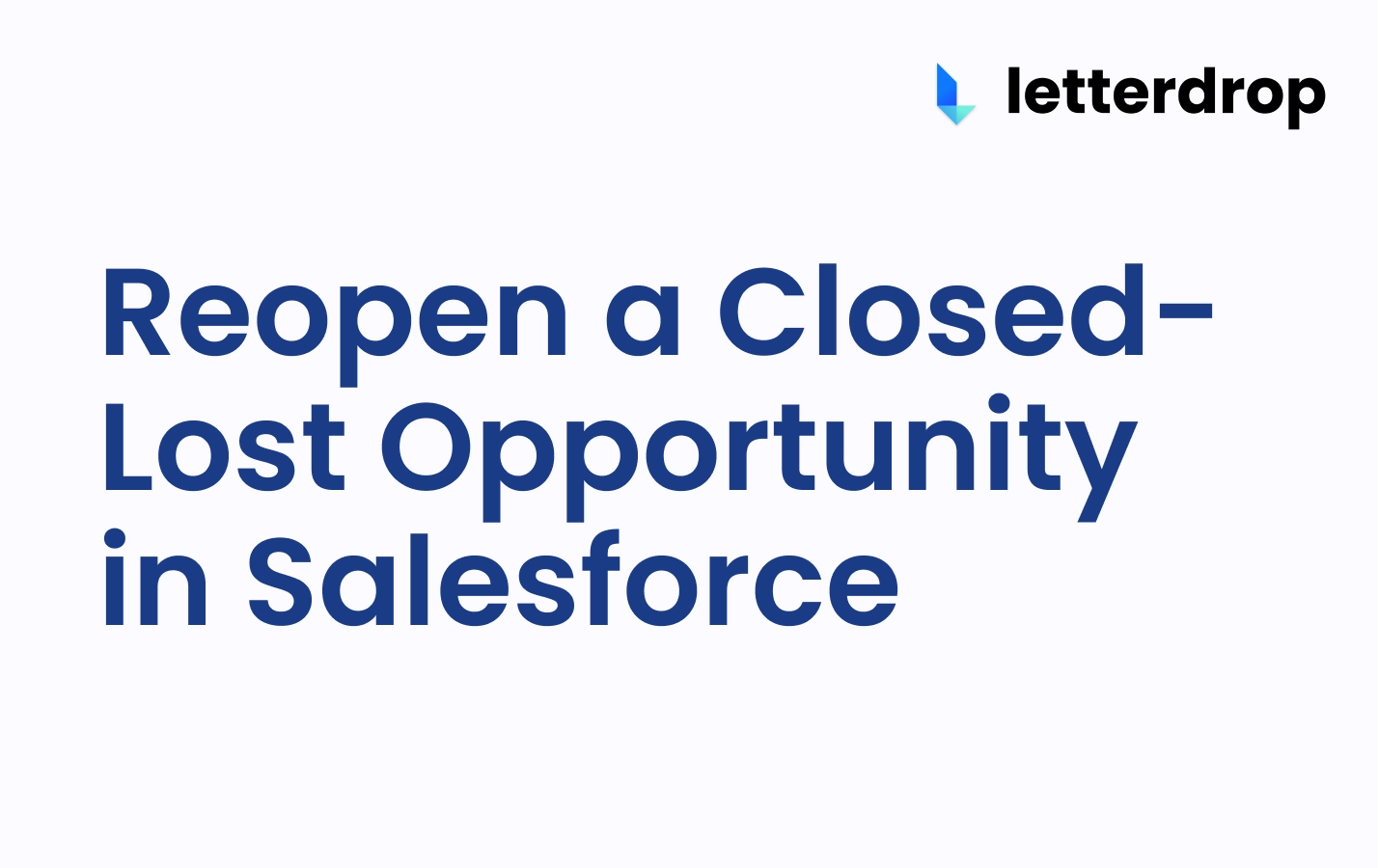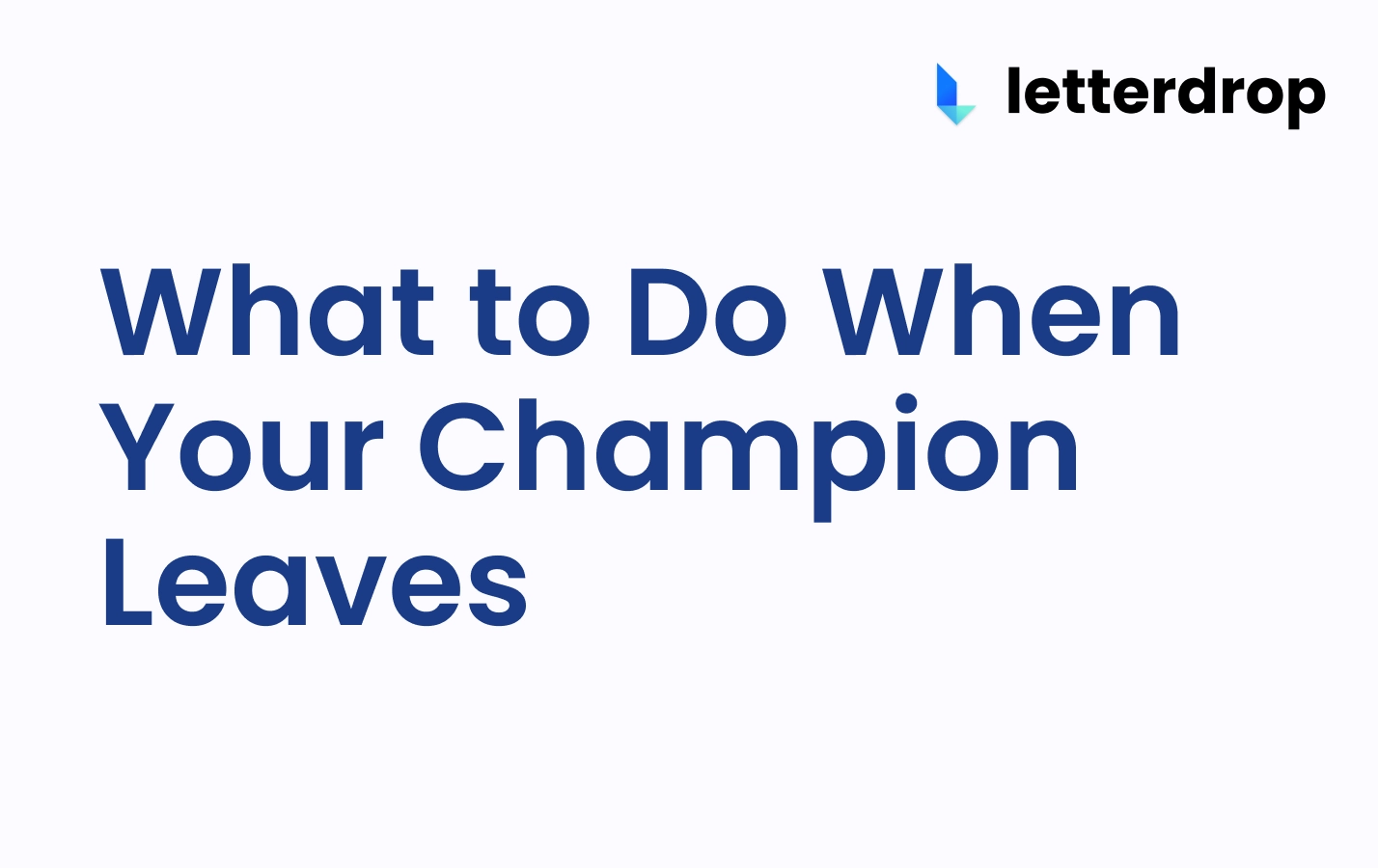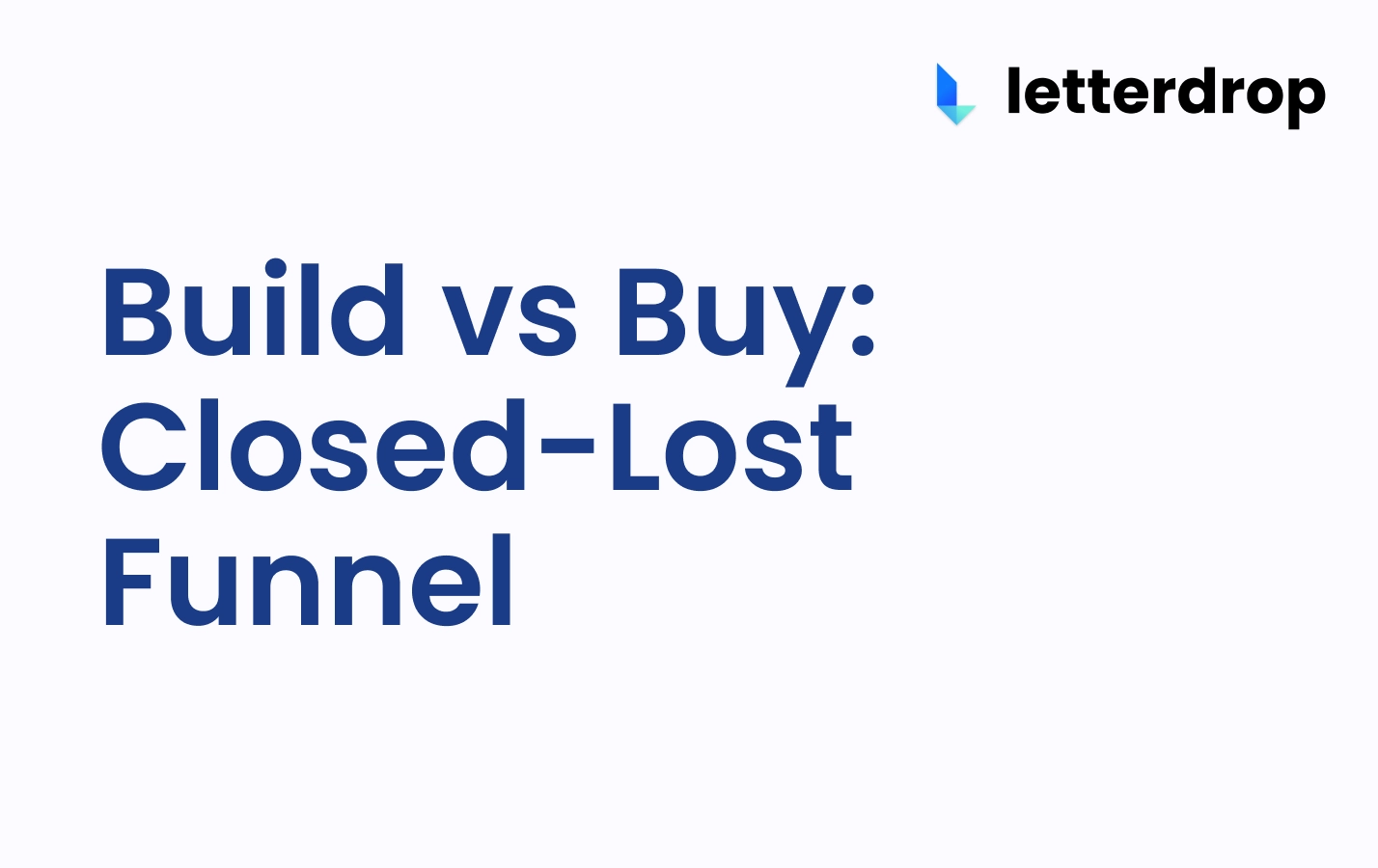LinkedIn Outbound Playbook: How to Drive 3x More Pipeline
When done right, LinkedIn can help you drive 3x your outbound consistently.
Not by chasing virality or automating spam, but by showing up consistently, targeting the right people, and turning activity into conversations.
Let’s break down what actually works.
1. The Math That Makes LinkedIn Work
For LinkedIn, you just need a little bit of discipline.
If you send ~150–200 connection requests every week, you’ll get around 30–40% acceptance. That’s 250 new connections every month.
Roughly 20–25% of those people will respond when you message them. That’s 50 conversations.
Half will be worth a chat.
Now you’re booking 4–8 qualified meetings a month, without spending a dollar on ads.
The people who say LinkedIn doesn’t work just stop too early.
You can’t get compounding returns if you never build momentum.
2. Target People Who Actually Log In
This sounds obvious, but most teams skip it.
Add the “Posted on LinkedIn in the last 30 days” filter in Sales Navigator.
You’ll instantly 2–3x your reply rates.
These are people who are active. They’re scrolling, commenting, and likely to see your message. Combine that with Boolean search like:
("VP" OR "Director") AND ("Revenue" OR "Sales") NOT ("Coach" OR "Investor" OR "Student")
Now you’re reaching real buyers instead of noise.
At Letterdrop, we go even deeper, surfacing prospects who are already talking about your category online.
That’s intent you can act on today.
3. Your Profile Is Your Landing Page
Before anyone replies, they click your profile.
What they see there determines whether they take you seriously.
Buyers should understand what you do and why they should care in under 10 seconds.
Here’s what to fix:
- Headline: Use something buyer-centric like “Revenue Engineer | Helping GTM teams cut outbound effort in half.”
- Banner: Add a short value prop or tagline with a soft CTA: “Follow for GTM playbooks” works better than a random landscape photo.
- About: Make it about the buyer, not your quota. Two-three short sentences on who you help and how.
- Featured: Pin 2–3 posts that show outcomes or insights: case studies, product walkthroughs, or strong thought leadership.
Keep your photo and name consistent with your email signature so buyers recognize you in both places.
Your profile should feel buyer-centric, clear, and trustworthy.
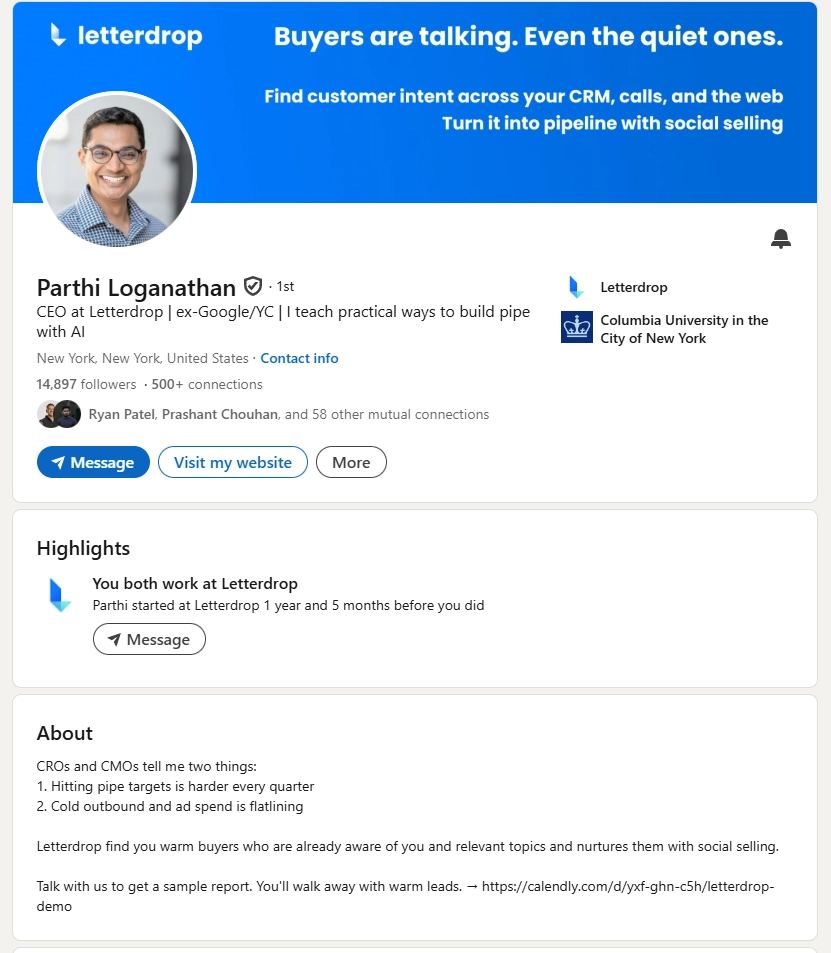
4. Messages That Don’t Sound Like Everyone Else’s
Every buyer’s inbox looks the same.
“Hi [Name]”
“Thanks for connecting”
Delete. Delete. Delete.
Instead, write like a person.
“I know this is random, but saw you’re hiring SDRs. Are you scaling outbound right now?”
or
“Caught your post about outbound reply rates dropping, curious if you’ve tested intent signals yet?”
Keep it under 120 words. Focus on their pain. End soft:
“Can I share a few ideas?”
The best messages feel like a continuation of something the buyer already cares about.

5. Stop Worrying About Virality. Post Consistently.
Every post is another chance for your market to see you, and for conversations to start naturally.
The more you show up, the more your audience remembers you when they enter a buying cycle.
A few tips:
- Repurpose your best posts every 60–90 days. No one remembers them.
- Use curiosity and specificity in your hooks.
- Keep paragraphs short. Mobile readability matters.
- Keep 80% value, 20% promotion.
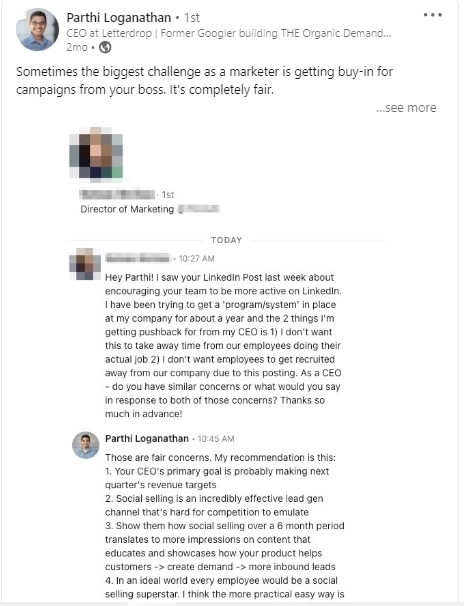
At Letterdrop, we help sellers do this automatically by turning sales calls into content, so your socials stay active without eating your week.
6. Engagement = Warm Pipeline
Every day:
- Comment on 15–20 posts from your ICP or target accounts
- Reply to every DM or comment within 60 minutes of posting
- Track connection acceptance (30–40%) and response rates (20–25%)
LinkedIn rewards early engagement.
People reward effort.
It’s a compounding flywheel: the more active you are, the more visible you get, the more conversations you start.
7. Track Conversations, Not Impressions
Most teams screenshot impressions and call it “social selling.”
Your LinkedIn funnel should be simple:
- Connection sent
- Message sent
- Responded
- Positive reply → meeting booked
Track this manually or automate it.
Letterdrop does it automatically — it finds the signals (post likes, competitor engagement), drafts the outreach, and pushes leads straight into your outreach tools like HubSpot or Apollo.
The result: consistent follow-up without reps living in spreadsheets.
8. The Layer Most Teams Miss: Warm Intent
Most reps only focus on who they messaged. But other folks are paying attention to you.
Watch for:
- People liking or commenting on your team’s posts
- Prospects engaging with competitors
- Closed-lost leads resurfacing
- Target accounts following your company page
9. Measure What Matters
Likes don’t pay the bills.
Track meetings booked, pipeline created, and revenue closed.
Everything else is just a leading indicator.
10. The Only Real Moat: Consistency
None of this is rocket science.
The hard part is doing it every week.
Everyone else posts once, sends 50 requests, gets busy, and quits.
Then they say LinkedIn doesn’t work.
LinkedIn works. You just have to keep showing up.
If you apply even half these principles consistently, you’ll start seeing LinkedIn pipeline come in like clockwork.
If you want to automate the hard parts, let us know.
Subscribe to newsletter
No-BS GTM strategies to build more pipeline in your inbox every week
Related Reading
Some other posts you might find helpful

